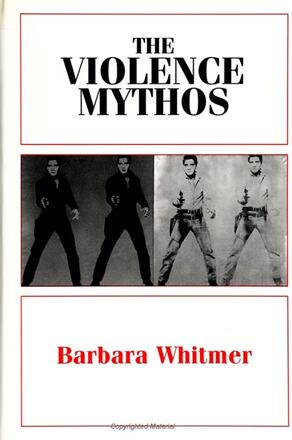
The Violence Mythos
Alternative formats available from:
Presents a powerful thesis on the nature and significance of violence and its mythos in Western culture, and offers an alternative interactive mythos that bridges the mind/body split inherent to most theories of violence.
Description
The Violence Mythos presents us with a powerful thesis on the nature and significance of violence in human society. It develops its argument with passion and concern, combined with a lucid and sensitive intelligence. The book is sharp and to the point, challenging any complacency with its idealism and its commitment to change. Whitmer is an author with attitude and with spirit.
The violence mythos is a collection of beliefs, attitudes, behaviors, and social expectations about violence in Western culture. It includes the war hero myth, the victimizer/victim exploitative dynamic, the theory of innate violence, the mind/body dualism, the myth of male aggression and the subordination of women, the marginalization of trust, and the development of technology in a tradition of destructive instrumentalism.
At the core of the violence mythos is the belief that humans are innately violent. The cultural system is then able to legitimate, rationalize, and use violence to control "violent humans," and thus becomes a self-reinforcing, self-perpetuating system of direct and indirect means of social control. This is the repetitive cycle of violence in trauma reenactment, transferred intergenerationally through the roles and rituals of the hero/perpetrator myth. The cycle ceases with the understanding of trauma in the trust triad of the interdependent mythos.
Barbara Whitmer has a Ph.D. in Ethics and Cultural Studies from the University of Toronto, and is an artist and writer.
Reviews
"This is a fluently written book, skillfully weaving together complex theoretical issues with political and policy concerns. It is tight and well-focused in its argument, and clear in its expression. The Violence Mythos is a good example of an essay in the real sense of the term. I found the book very engaging." -- Kevin Robins, University of Newcastle
"Quite eclectic in interests, Whitmer's book taps into several significant areas of cultural and disciplinary discussion: the sociology and psychology of violence, the legitimation of violence through ideology and myth, violence and the warrior ethos, violence and symbolic discourse. Whitmer's analysis has specific insights to offer on such topical issues as violence at war, violence against women, international terrorism, and so on." --Marcel Cornis-Pope, coeditor of Violence and Mediation in Contemporary Culture